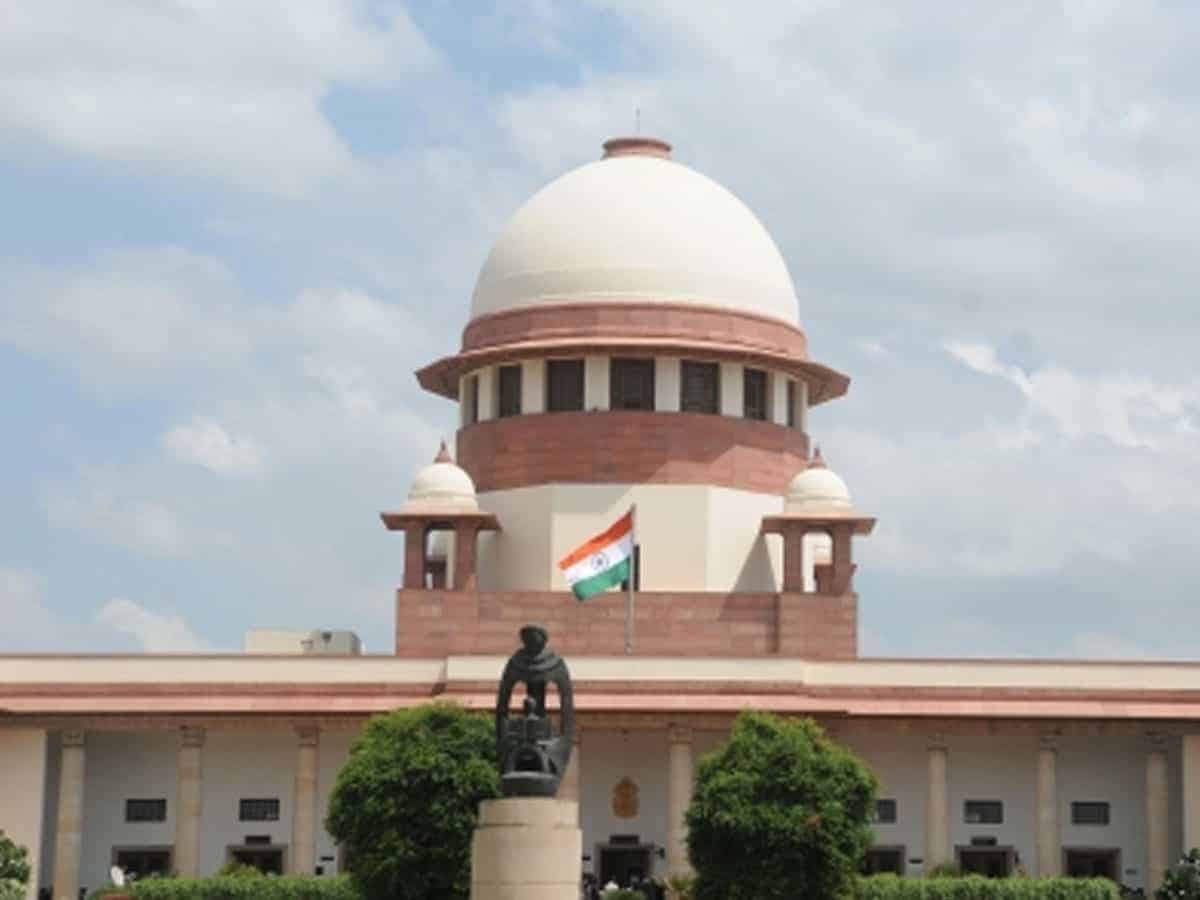
New Delhi: Amid the ongoing row between the Centre and the judiciary over delay in appointments of judges, the Centre has told the Supreme Court that as on November 30, 2022, sanctioned strength of high court judges is 1,108 and working strength is 776, resulting 332 vacancies and HCs have made 146 (44 percent) recommendations which are under consideration in the government and the Supreme Court.
The Centre also said the rate of rejection of names recommended by HCs at Supreme Court level is 25 percent which is very high.
In a status report submitted in the apex court, the Centre said HCs are required to make recommendations for the remaining 186 vacancies which constitute 56 percent of vacancies.
It added that 146 proposals — 92 (unfilled vacancies under Bar quota) plus 54 (unfilled vacancies under Service quota) — are at various stages of processing between the government (118 proposals) and Supreme Court (28 proposals).
“Out of 118 proposals with the govt, 08 proposals were recommended by the SCC (Supreme Court collegium) for the first time, 30 proposals were rejected by the SCC and to be remitted to the high courts, and 80 fresh proposals have been recently received from high court collegiums. Out of 28 proposals with SCC, 25 proposals are for reconsideration of SCC and 03 proposals deferred by the SCC,” the status report said.
The Centre said a total of 43 HC judges would retire during the period from December 1, 2022 to May 31, 2023 and as per Memorandum of Procedure (MoP), the HC collegium is required to make recommendation at least 6 months in advance of occurrence of vacancy. It added on December 1, 2022, the HCs should have made recommendations for a total of 229 unfilled vacancies. “So far no recommendation for these 229 vacancies, including 43 prospective vacancies, have been received,” it said.
On the aspect of high rate of rejection by the SCC, the report said: “While making 165 appointments, during the current calendar year 2022, 221 recommendations made by HCs were processed. The remaining 56 proposals were rejected by the SCC (32 remitted and 24 to be remitted). The rate of rejection of names recommended by High Courts at Supreme Court level is 25 percent which is very high.”
“As mentioned above, for 56 percent vacancies, names are yet to be recommended by the High Courts and out of names recommended by HCCs; approximately 25 oer cent names are rejected at the level of SCC. This high rate of rejection also contributes in filling up of only 1/3rd of vacancies. There is a need to make timely recommendations of eligible, meritorious candidates having sound integrity. This would help in filling up vacancies in speedier manner.”
On the aspect of status 10 names reiterated cases, the report said initially, there were 31 reiterated cases, and another five cases of Allahabad High Court reiterated by the SCC bringing the total to 36 reiterated cases.
“With a view to move further, Government of India had deliberations with the then CJI which resulted in appointment of 24 recommendees as High Court Judges. 02 other cases were remitted to the Chief Justice of respective High courts. At present, the remaining 10 reiterated cases are pending with the SCC. There have been precedents in the past where the Government has referred back the reiterated cases to SCC and the SCC has recalled its reiterated recommendations,” said the report.
On the status of 11 first time recommended cases, the report said: “Out of 11 first time recommended cases, appointment of 02 recommendees Advocates of Bombay High Court has been notified on 29.11.2022. The remaining 09 first time recommended cases have been referred to SCC on 25.11.2022 for reconsideration and are pending with them.”
In pending cases, the report said finalisation of 66 fresh proposals for appointment judges received from HC collegiums where IB input has not yet been received within next 8-12 weeks and finalisation of MoP, after receipt of inputs from Supreme Court.
The Centre submitted this report in the contempt petition filed by Advocates Association of Bengaluru against Centre for breaching the timeline for judicial appointments.
The top court while hearing the contempt petition had expressed concern on delay in processing the appointment of HC judges and not adhering to the additional timelines laid down by it in order passed on April 20, 2022.



